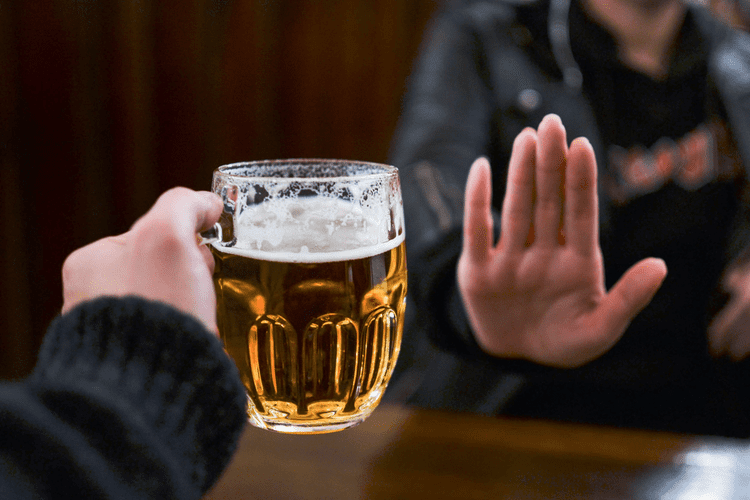Residential treatment is ideal for individuals with severe alcohol addiction or those who have not responded to other forms of treatment. Moreover, the study highlighted increased cancer risks at all alcohol levels, suggesting alternatives like exercise or meditation. Experts cautioned that the findings show correlation, not causation.
Phase 1: Reward Development
Many people remain addicted to alcohol because they don’t want to face the withdrawal symptoms of drinking cessation. Drinking alcohol increases the production of several is alcohol addictive chemicals in the brain, like dopamine and endorphins. These chemicals produce pleasurable feelings and act as natural painkillers. The pleasurable sensations often lead individuals to continue drinking once they’ve started. Drinking is woven into social gatherings and celebrations and is a tool to unwind after a long day.
Alcohol Use Disorder
Without alcohol, symptoms of depression or anxiety can increase, or even happen for the first time. Others experiencing alcohol problems find terms like ‘alcoholic’ and ‘alcoholism’ (or ‘addict’ and ‘addiction’) unhelpful. They may not wish to define themselves as ‘an alcoholic’ or ‘an addict’ and may see themselves more as someone who is struggling with life and overusing alcohol to cope.
Neuroscience: The Brain in Addiction and Recovery

Any of these signs can signal that you’re drunk or what’s officially called “acute alcohol intoxication.” They usually wear off in a few hours after you stop drinking. More than 178,000 Americans die each year as a result, and drinking alcohol is a factor in more than half of all murders, suicides, and traffic accidents in the U.S. Alcohol misuse also plays a role in domestic violence and child abuse.
- Constant stimulation of dopamine, as with consistent alcohol abuse, actually causes an overall decrease in dopamine.
- They may not wish to define themselves as ‘an alcoholic’ or ‘an addict’ and may see themselves more as someone who is struggling with life and overusing alcohol to cope.
- Over time, the brain can become dependent on alcohol to function normally, making it hard to stop drinking.
If you would like to reduce your alcohol use but aren’t sure where to get started, it’s best to talk with a healthcare professional. Engaging in heavy, habitual alcohol use may make withdrawal symptoms likely if you stop suddenly. A doctor can help assess your situation and recommend treatment to reduce these symptoms. It’s helpful to be aware of your risk level when it comes to alcohol use disorder, so you can take precautions and monitor your drinking as needed.
Alcohol is a very simple chemical that can bring about big changes in the complex functions of the human brain. When we drink alcohol, it triggers the release of other chemicals in the body that make us feel more content and less sensitive to pain. So, it is no surprise that once we start drinking, we often want to carry on. The severity of the disease, how often someone drinks, and the alcohol they consume varies from person to person. Some people drink heavily all day, while others binge drink and then stay sober for a while.
The Importance of Discreet, Private Treatment for High-Level Professionals
Friends and family members of people who have an alcohol addiction can benefit from professional support or by joining programs like Al-Anon. In order for treatment to work, the person with an alcohol addiction must want to get sober. These complications are reasons why it’s important to treat alcohol addiction early.
- The two manuals use similar but not identical nomenclature to classify alcohol problems.
- Gradually, this coping mechanism becomes entrenched, and the individual finds it harder to handle stress without drinking.
- The consumption of alcohol is deeply embedded in social practices and rituals, often celebrated as a cornerstone of community gatherings and personal milestones.
- Alcohol use disorder is a medical and mental health condition with identifiable causes and risk factors.
- Alcohol addiction means someone can’t stop drinking, even if it’s causing problems.
- A recent review found that Alcoholics Anonymous led to higher rates of abstinence from alcohol long term compared to other treatments.

For example, people who are impulsive or who have trouble controlling their emotions might be more likely to turn to alcohol as a way to deal with their feelings. Those who suffer from mental health conditions like depression, anxiety, or trauma may also use alcohol as a way to self-medicate, which can easily spiral into addiction. For example, if someone grows up in a household or culture where heavy drinking is the norm, they may learn to view alcohol as a https://srsystemsus.com/sobriety-tattoos-embracing-recovery-through-ink/ normal part of life or a necessary way to handle stress or celebrate. If friends or family members are also of the same mindset, there may be peer pressure or a sense of belonging attached to drinking. These social and environmental factors can contribute to how alcohol addiction develops and also persists.
To understand why alcohol is addictive, it’s essential to look at the multifaceted ways it impacts both the brain and the body. Having an understanding of both the mental and physical factors of alcoholism is essential, especially when it comes to finding effective ways to address and treat this condition. The liver becomes less efficient at breaking down alcohol, meaning more alcohol stays in the bloodstream longer. Over time, this can lead to serious health problems like fatty liver disease, cirrhosis, and even liver failure. Chronic alcohol use can actually change the structure of Alcohol Use Disorder the brain.